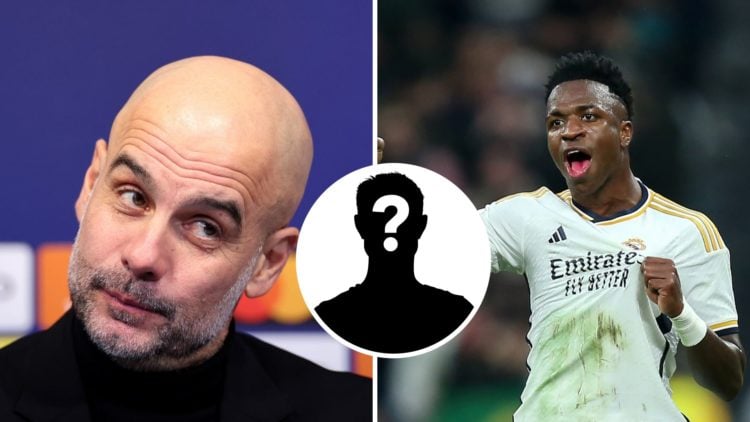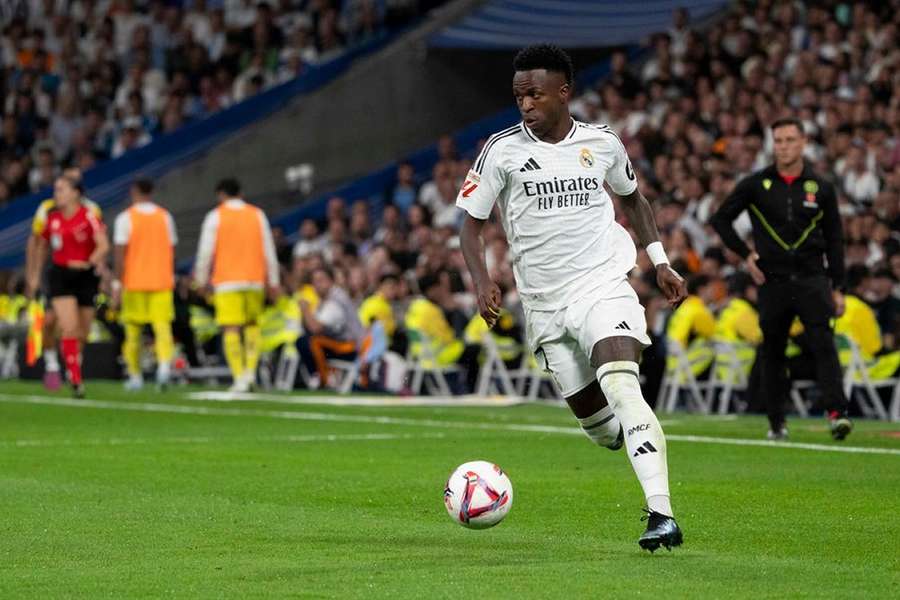Manchester City are reportedly interested in signing Vinicius Jr. for €150 million, signaling a potential seismic shift in the landscape of European football. As the Premier League giants prepare to make a decisive move in 2026, the ambition is clear: craft an unstoppable attacking force by pairing the Brazilian wunderkind with Erling Haaland. This audacious plan is not merely about transferring a star but about rewriting futures, threatening to unsettle Real Madrid’s long-standing dominance, and intensifying the ongoing saga of contracts, club loyalty, and strategic power plays. The coming years promise a dramatic showdown that could redefine club allegiances and the global hierarchy of football superclubs.
This potential transfer isn’t just a routine negotiation—it’s a chess game fueled by complex contract disputes, historic rivalries, and visions of future world dominance. Manchester City’s readiness to bid €150 million for Vinicius Jr. underscores their unwavering commitment to building a super-team capable of conquering the Champions League and reestablishing their status as the ultimate football powerhouse. Meanwhile, Vinicius’s situation at Real Madrid embodies the broader struggles of the modern star—torn between personal ambition, club politics, and the relentless pressures of football’s global stage. As negotiations hover on the horizon, all eyes are riveted on Madrid, where a ticking contractual “time bomb” could explode, reshaping destinies and fueling one of the most captivating transfer dramas in recent football history.
More Sesko is Disappointing – The Manchester United Debut That Led to Backlash and Doubt 2025
The ticking time bomb at Bernabeu: Vinicius and the contract battle.

The atmosphere at the Santiago Bernabeu has become increasingly tense as Vinicius Jr.’s contract negotiations reach a boiling point. Despite being a vital piece in Real Madrid’s decade-long quest for European dominance, Vinicius finds himself at an impasse—his demands for equal recognition, wages, and status within the club remain unmet by a front office resistant to compromise. This situation resembles a “slow-burning bomb,” as both sides dig in their heels, aware that a single misstep could lead to a seismic wave of consequences. The longer these negotiations drag on, the more volatile the situation becomes, with secretive senior club officials fearing that a star of Vinicius’s caliber could soon choose a different elite destination, potentially forging an unbridgeable rift within the dressing room and the club’s hierarchy.
From Vinicius’s perspective, the prolonged standstill signifies frustration with the club’s apparent indifference to his groundbreaking contributions, especially considering his recent brilliant performances and influential role in Madrid’s attacking line. Meanwhile, Florentino Perez, the ever-calculating president of Real Madrid, is increasingly cornered by conflicting priorities. On one side, he aims to uphold the club’s tradition of “Madridismo,” ensuring that stars like Vinicius stay loyal and committed; on the other, he faces mounting pressure to maintain financial stability and withstand aggressive offers from rivals. This delicate balancing act is reminiscent of historic transfer wars, where club loyalty clashes with economic realities, and the final outcome could pivot on who blinks first. The “slow bomb” ticking in Madrid symbolizes not just a potential star departure but a significant strategic crossroads that may reshape the club’s future trajectory.
👑 The tough situation of ‘Godfather’ Perez: History remembers Ramos and Ronaldo.

Florentino Perez’s leadership at Real Madrid has always been a masterclass in balancing tradition with modern football’s ruthless economics. However, Vinicius’s ongoing contractual discord presents a unique challenge—a test of Perez’s legendary ability to wield influence without sacrificing club philosophy. Historically, Perez has shown he’s willing to let go of icons like Sergio Ramos and Cristiano Ronaldo when their demands threaten the club’s core financial principles or create insurmountable tensions. These past decisions accelerated Madrid’s reputation as a ruthless yet pragmatic club, where individual brilliance must align with collective stability. Now, faced with Vinicius’s rising star, Perez’s patience might be tested again, as internal disagreements threaten to fracture the club’s unity and jeopardize its future competitiveness.
The broader dilemma for Perez is whether to prioritize short-term stability or risk letting a generational talent walk. Having cultivated a tradition rooted in “Galácticos” and crafted an era where exceptional players are both heroes and commodities, he must decide whether to capitulate to Vinicius’s demands or uphold the club’s infamous stance of commanding authority. Past decisions involving Ronaldo and Ramos echo today, highlighting a pattern where Madrid’s leadership prefers to avoid setting precedent that individual demands override collective authority. This strategic calculus makes the current standoff especially delicate—if Perez chooses to play hardball, Madrid could risk losing a player vital to their future success, which would be considered a historic blunder reminiscent of past losses that shaped the club’s identity.
The looming confrontation has broader implications unchecked by Madrid’s storied history: Will Florentino Perez’s famed prowess for controlling the narrative hold firm once again, or will he be forced to reconsider his position and perhaps make a historic exception for Vinicius Jr.? This scenario sets the stage for a high-stakes clash between tradition and modern football’s relentless pursuit of individual excellence. The outcome could well determine whether Madrid’s legacy continues to thrive or falters under the weight of internal discord and external pressures from ambitious rivals like Manchester City.
Conclusion
The saga of Vinicius Jr. at Real Madrid encapsulates the complex intersection of personal ambitions, club legacy, financial negotiations, and strategic planning that define modern football’s elite. With Manchester City heavily eyeing the Brazilian star and prepared to offer €150 million in 2026, Madrid’s internal conflicts and Florentino Perez’s delicate balancing act have taken center stage in what could become one of Europe’s most transformative transfer battles. Ultimately, the decision regarding Vinicius’s future may not just influence the immediate fate of Madrid but could also signal a new era of power shifts among Europe’s top clubs, where strategic foresight and negotiation finesse determine the next chapter of football dominance. The coming months will reveal whether Madrid’s “slow bomb” detonates or if a new chapter begins with Vinicius’s next move—possibly, at Manchester City’s behest, reshaping the continent’s football hierarchy forever.

